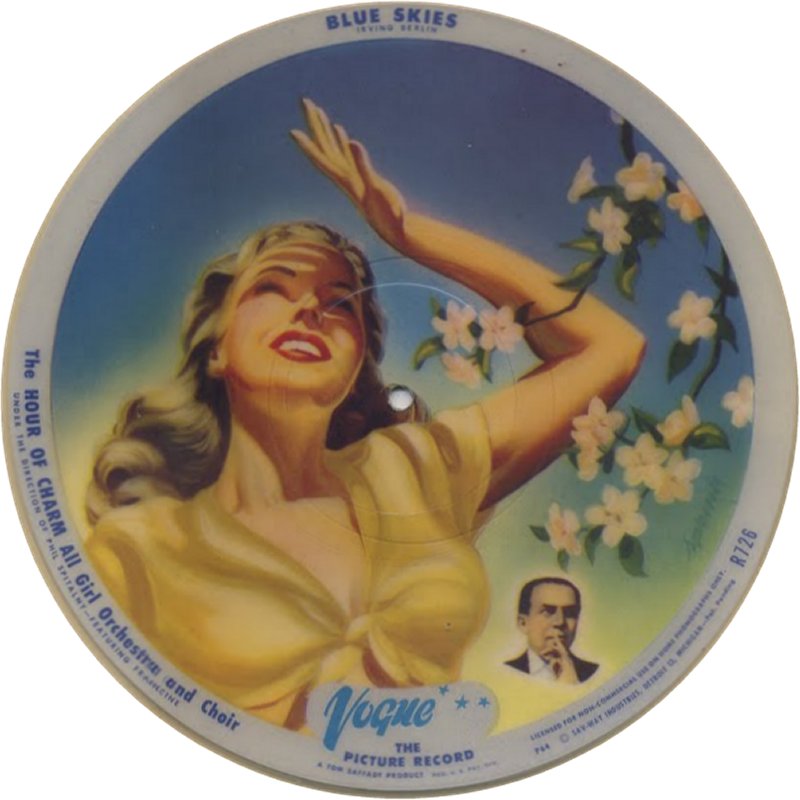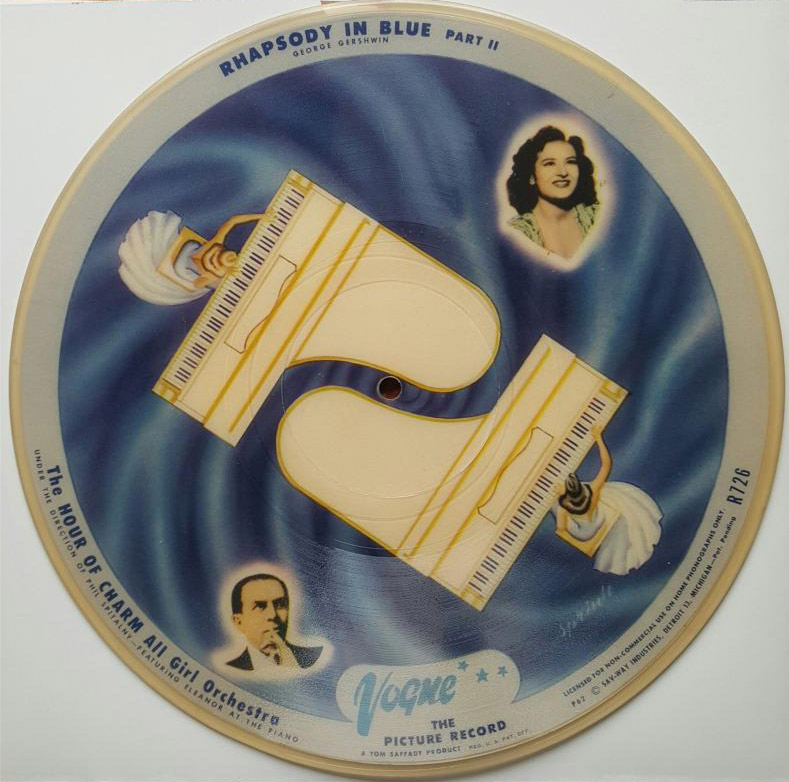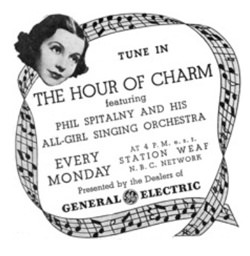By Doug Boilesen, 2003
The popularity of the radio grew in
the 1920's and the wireless wonder emerged as the home's pre-eminent
entertainer, a position previously held by the phonograph and the
piano.
By the end of the 1920's, with the Great
Depression starting to seriously impact the economy, many phonograph
manufacturers were disappearing. Edison's cylinder machines had already
lost popularity and in 1929 Edison made it final by discontinuing
production of all cylinder phonographs and records.
Sales of disc records made by companies
like Victor, Columbia and Brunswick significantly declined. The movement
of phonographs from the parlor to the attic became part of the aftershock
of the radio's seismic impact on the phonograph industry. After all,
how could phonographs compete with the new magic box that produced
free music and such a variety of entertainment?
The radio produced popular shows and
one of best was "The Hour of Charm." Airing on Sunday night
at 9:00 pm it was a mainstay on the CBS Radio Network and NBC from
1935 to 1948. (1)
Advertised as radio's most celebrated
"All Girl Orchestra and Chorus" it featured Arlene Francis as Mistress
of Ceremonies. Vogue Records immortalized this group in 1947 in its
own unique way with a picture record of Blue Skies and Rhapsody
in Blue (see below, Vogue Picture Record Blue Skies and
Rhapsody in Blue R726).

"The Hour of Charm"
was Betty Ann's favorite radio show. Even though they never had a
phonograph in their home when Betty Ann was growing it probably wouldn't
have been able to compete with the radio and "The Hour of Charm."
A special relationship seems to have existed between Betty and this
show because Betty felt that this orchestra of women was performing
every week just for her and it was therefore something that she couldn't
miss.
The challenge for Betty Ann, however,
was access to the radio. Her older step-brother and his wife, Chris
and Hilda Vogt, at one point were living with them and even after
they moved out they were often there on the weekends. The problem
for Betty was that on Sunday evening Chris often listened non-stop
to the radio.
Times were hard for Chris and Hilda
as they were for so many families during the Great Depression. Chris
sold brooms during the week, driving the backroads of Nebraska in
the hope of a few sales. By the weekend when he returned home I think
Betty Ann thought Chris always got extra consideration for his difficult
schedule. Of course Betty Ann was still a school girl (being twenty
years younger than Chris) but in her mind she didn't think her vote
counted the same as the adults of the house when it came to the radio.
Their farm had a windcharger for charging
the radio's wet cell batteries and it was always questionable if there
was going to be enough battery power by the end of the day. For Betty
Ann, therefore, the weekly questions were always the same:
Would Chris and Hilda be at home Sunday
evening?
How many radio programs would Chris
tune into during the day?
Would the batteries be strong enough
at 9:00 pm on Sunday?
Unfortunately, the answer sometimes
resulted in Betty Ann missing "The Hour of Charm".
But like other persevering farm families
who stayed in Nebraska during the 1930's Betty Ann hoped that better
times were just around the corner and that next week it would be her
time to tune in "The Hour of Charm".
Betty had some help in 1936 when Congress,
led by Nebraska's Senator George Norris, passed the Rural Electrication
Act for the purpose of bringing electricity to rural areas like Howard
County, Nebraska.(2) When electricity
reached their farm the radio's dependence on battery power was gone
and better times indeed seemed on the rise.
Years later Betty Ann's stories of
listening to the All Girl Orchestra and Chorus on the radio
were one of the highlights of her childhood that she enjoyed retelling.
Clearly, the "Hour of Charm"
had an impact that lasted more than 60 minutes each week.


Other
Betty Stories Menu